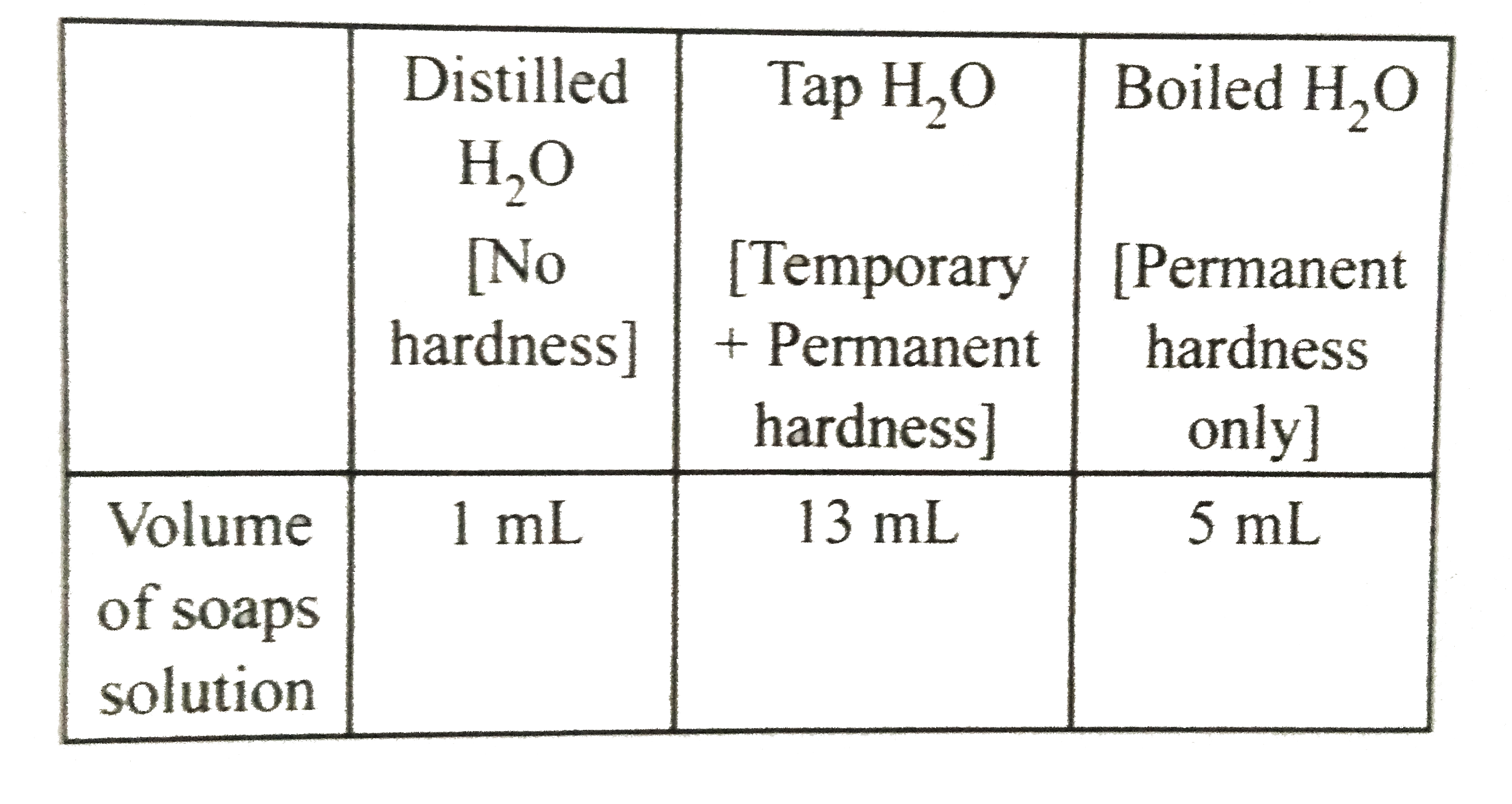25mL samples of distiled water, tap water and boiled water required, respectively, 1mL,13mL and 5mL of soap solution to form a permanent lather. The ratio of temporary to permanent hardness in the tap water is
A
3:2
B
2:3
C
1:2
D
2:1
Video Solution
Text Solution
The correct Answer is:D

Volume of soap solution used effectively in boiled
Water =5−1=4mL
∴ Temporary +Permanent hardness =12mL
Permanent hardness =4 mL
Temporary hardness =8mL
∴Temporary hardness Permanent hardness=84=2:1
|
Topper's Solved these Questions
- HYDROGEN, WATER AND HYDROGEN PEROXIDEBook:CENGAGE CHEMISTRYChapter:HYDROGEN, WATER AND HYDROGEN PEROXIDEExercise:Exercises (Assertion Reasoning)
Explore 17 Videos
- HYDROGEN, WATER AND HYDROGEN PEROXIDEBook:CENGAGE CHEMISTRYChapter:HYDROGEN, WATER AND HYDROGEN PEROXIDEExercise:Exercises (Interger)
Explore 10 Videos
- HYDROGEN, WATER AND HYDROGEN PEROXIDEBook:CENGAGE CHEMISTRYChapter:HYDROGEN, WATER AND HYDROGEN PEROXIDEExercise:Exercises Multiple Correct
Explore 19 Videos
- GENERAL ORGANIC CHEMISTRYBook:CENGAGE CHEMISTRYChapter:GENERAL ORGANIC CHEMISTRYExercise:Analytical and Descriptive
Explore 1 Video
- IONIC EQUILIBRIUMBook:CENGAGE CHEMISTRYChapter:IONIC EQUILIBRIUMExercise:Archives Subjective
Explore 28 Videos
Similar Questions
Knowledge Check
100mL sample of distilled water, tap water and boiled water required, respectively, 2mL,17mL and 7mL of soap solution to form permanent lather. The ratio of permanent to temprorary hardness in the tap water is
A3:2B2:3C1:2D2:1A water sample is said to contain permanent hardness if water contains
Asulphates and chlorides of calcium and magnesiumBcarbonates of calcium and magnesiumCbicarbonates of calcium and magnesiumDsulphates and chlorides of sodium and potassium.Both temperary and permanent hardness are removed on boiling water with:
ACa(OH)2BNaCO3CCaCO3DCaO.
Distinguish between :
a. Hard water and soft water
b. Temporary hardness and permanent hardness
View SolutionWhich of the following salts is responsible for temporary and permanent hardness of water respectively?
View SolutionWhich of the following salts is responsible for temporary and permanent hardness of water respectively?
View SolutionWhich of the following salts is responsible for temporary and permanent hardness of water, respectively?
View SolutionWhich of the following salts is responsible for temporary and permanent hardness of water, respectively?
View Solution

